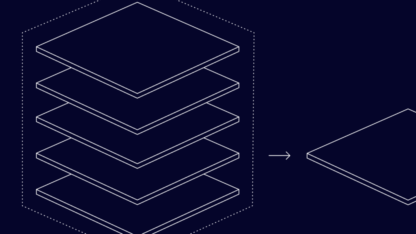What Does Forter Offer?
Forter has grown its business with a diverse client portfolio, across retail sectors like fashion, food, and travel. Forter’s anti-fraud software suite provides businesses with tools to assess trust in their customers based on a “global graph” of 1 billion profiles.
The Trusted Identities applet also links users within the network, allowing companies to see who “knows” each other in the customer base – which can be applied to help stop fraud rings or patch other holes in loss prevention.
Forter also offers tools to leverage the maximum transaction risk analysis (TRA) exemptions to customers, minimizing friction while keeping compliant with existing PSD2 requirements.
Why Look for a Forter Alternative?
Although Forter achieves success in the eCommerce sector, Forter might not always be an ideal choice for some companies.
As Forter uses a proprietary 1 billion-user “global graph” to power its risk calculations, the decisions that the algorithms make are not as transparent as desired.
This blackbox machine learning model ultimately provides less data but more automation for a security team. Thus, some Forter users point out that there is sometimes no recourse when a CSA has to discuss the reason for a declined transaction.
Compared to other offerings on the market, reviews also suggest that Forter’s ruleset is more rigid, with less control over blocklists and less interaction with how the rules are handled, including notifications when outlier transactions appear.
Six Forter Alternatives
These six alternatives to the Forter anti-fraud suite overlap with its services and may deliver a different end-user experience to companies in need of solutions.
SEON
SEON is a global command center for fraud and AML compliance with a focus on real-time risk assessment based on a customers digital footprint, as well as other factors.
SEON leverages 900+ first-party, real-time data signals including email, IP, and device fingerprinting, as well as social media and online account lookups, combined to provide a three-dimensional, instant profile. This real-time profile informs all of SEON’s features, including:
- complete aggregation of user data: IP, email, device, velocity checks, behavior analysis, social media lookup
- fully customizable risk analysis ruleset
- instant in-browser access including free trial period, free customer support
- readily available customer support made up of fraud analysts
SEON’s whitebox machine learning algorithm provides AI insight into rules that work for each company in a way that is completely transparent and explainable. Every customer has complete control over the rulesets leveraged, as well as the resulting actions and automation. 240+ ready-to-use rules get you started from day one and custom industry rules can be added easily as well.
Companies benefit simply from drawing insights through SEON’s inherent data aggregation function via API to assist alternative credit scoring, identify high-value customers, minimize friction, and, of course, to stop fraudsters in their tracks.
Book a meeting to see how SEON’s real-time fraud fighting solution can benefit you
Ask an Expert
Signifyd
Since its foundation in 2011 by former PayPal developers Rajesh Ramanand and Michael Liberty, Signifyd has garnered a client roster that includes multiple entries on the Fortune 1000 and Internet Retailer Top 500 lists.
Signifyd breaks its Commerce Protection Platform into four distinct sections:
- fraud protection
- abuse prevention
- account protection
- payments optimization
In addition, the software suite has a unique offering for PSPs (payment service providers).
Using machine learning combined with human analysts, Signifyd references transactional and behavioral data from across a network of merchants that number in the thousands, across over 100 countries, creating a comprehensive set of data points to detect fraud.
Signifyd was one of the first fraud solution enterprises to offer a 100% guaranteed chargeback model, which, along with its AI algorithm, positioned it as an obvious choice for companies with large transaction volumes who want to integrate a fully automated fraud solution into their stacks.
As is inevitable with blackbox models, some reviews posted online point out that false positives occur – and can be as sensitive as using a relative’s email address instead of the cardholder’s. As the model doesn’t provide an explanation for the rejection, the sale is likely lost.
These kinds of learning machine models rely on a proprietary, closed database for reference checks. This is even more of a concern because the company offers 100% chargeback recovery and thus has the incentive to err on the side of caution.
Such false positives represent Signifyd being safer, rather than sorry, but also cause disappointment in legitimate customers, as well as lost sales.
SHIELD
SHIELD was originally founded in 2008 under the name CashShield. Justin Lie designed his original fraud prevention tool focusing on optimization and automation. After a soft product launch in 2011, CashShield went to market in 2014, rebranded as SHIELD in 2016, and has since expanded from its native Singapore to include offices in San Francisco, London, Berlin, Bangkok, Singapore, Jakarta, Beijing, and Bangalore.
SHIELD’s reputation in the industry has attracted clients across diverse online sectors, including gaming, ridesharing, superapps, fintech, and more. Among SHIELD’s notable customers are MPL and Razer, TrueMoney, and HappyFresh.
The Southeast Asian market, where many of SHIELD’s clients are based, is increasingly focused on mobile access – and therefore is also interested in mitigating the security pitfalls that come with mobile ecommerce.
SHIELD’s SEA customers surely look to benefit from SHIELD’s current focus on gathering persistent data from mobile users. This allows security teams to observe a user’s session with persistently updated risk scores, so the team can know exactly when and how an ostensibly good user turns into a bad one – and leverage that data in future sessions.
The vendor also advertises itself as confidently handling issues that plague sectors like gaming, ridesharing, and end-to-end digital marketplaces, including:
- bot attacks
- payment fraud
- referral/promo abuse
- spam/user abuse
- ad fraud
- account sharing/subscription abuse
Accertify
Accertify is a risk-analysis platform that was acquired by the American Express company in 2010, just three years after it was founded by a group of ecommerce and software executives.
Off the obvious trust that the backing of such an iconic financial institution provides, Accertify has accrued some of the biggest names from the travel and ticketing industries, among others. These customers include Southwest Airlines, Ryanair, and Stubhub, while even more household names – like Urban Outfitters and 1-800Flowers.com – also rely on this fraud prevention company for analyzing their customers for risk.
Thanks to American Express, Accertify and its clients have access to some of the most comprehensive datasets available worldwide. Naturally, this goes hand-in-hand with customer care that reaches across international borders, with 24-hour, multilingual support being part of the AmEx standard.
As Accertify itself is primarily used for risk management, a full fraud prevention suite requires some of AmEx’s other products. Programs for SCA optimization, chargeback management, and digital identity verification are all offered by the parent security suite and are easy to integrate into your existing AmEx stack. That said, some reviews posted online suggest that incorporating Accertify into a non-AmEx stack can be a markedly more difficult process.
Kount
Fraud prevention company Kount was acquired by credit-monitoring mega-giant Equifax in January of 2021 in a deal worth $640 million. Equifax, which owns a diversified portfolio of smaller fintechs, leverages Kount’s customizable ruleset in its networks to minimize chargebacks, lower churn, uncover ATO and botnet attacks, and mitigate friendly fraud and gift card fraud.
Similar to Accertify, Kount having Equifax as a backer is an obvious signifier of trustworthiness, and major enterprises respond to that reputation. Thus, Kount boasts over 15,000 customers, with some of the most recognizable brand names among them, including AMC, Dunkin’ Donuts, NewBalance, PetSmart, Staples, and GNC.
Because Kount is marketed towards – and indeed accustomed to – handling these massive enterprise-level businesses with huge transaction volumes, automation is a large part of what it offers.
To this end, Kount offers a chargeback guarantee, which generally means more false positives but a little less friction overall. To cut down on the false positives, customizable rulesets can be applied to the proprietary Identity Trust Global Network.
This network holds a record of over 32 billion transactions from an equally diverse set of data providers. The three Kount programs that interact with it, Command, Central, and Control, use it to provide end-to-end security for card-not-present (CNP) transactions, as well as mitigate account takeover attempts and suspicious logins.
In terms of possible shortcomings of Kount as a fraud prevention vendor and alternative to Forter, some customer reviews point out occasional long loading times in the system.
Emailage (LexisNexis)
Initially founded by Rajesh Pandey and Rei Carvalho, email intelligence startup Emailage was acquired by LexisNexis for $480 million in 2018 and folded into its portfolio of fraud solutions, which they refer to as their Digital Identity Network.
Emailage’s main fraud-fighting capability relies on scraping metadata from email addresses associated with online transactions. Data points like the estimated age and provenance of an email address get cross-referenced with the existing, massive LexisNexis database of over 5 billion email users across 150+ countries to assign risk scores.
However, we should also point out that despite being massive, this database is not live, so stale data could exist in it, leading to inaccurate results.
The Emailage system markets itself largely towards financial institutions and insurance – in other words, companies that will likely invest in the entire LexisNexis security stack. Because of this scope, some of Emailage’s highest-profile customers are major players in the fintech landscape, like Societe Generale, Equifax, and LexisNexis’ parent company itself, RELX Group.
As a standalone product, Emailage does not offer as comprehensive risk analysis as some other products. LexisNexis’ Digital Identity Network, however, includes products that cover a variety of analytical angles and presents a very complete fraud-fighting tool at an accompanying enterprise-level price and scope. The downside? Subscribing to all of these can be very costly – while it’s not as easy to integrate LexisNexis tools with those from other vendors.
In any case, Emailage remains a well-trusted product, which can be ideal for some types of companies.
Best Forter Alternatives
| Company | Core Features | Notable Clients | Summary |
| SEON | • digital profiling • whitebox ML & separate blackbox AI • industry presets + customizable rules • email, IP + phone data enrichment • advanced device fingerprinting | Revolut, Air France, Kindred | Unique in-depth customer profiling and flexible rules |
| Signifyd | • chargeback guarantee • IP, email + phone analysis • big data analysis • blackbox AI transaction monitoring • identity and address verification | Samsung, Rite-Aid, Lacoste | Chargeback guarantee and automated actions |
| SHIELD | • device fingerprinting • real-time profiling • persistent profile updates • user-friendly workflow • focus on gaming, apps, ridesharing | TrueMoney, Razer, MPL, OMNI | Specializes in superapps and end-to-end app marketplaces |
| Accertify | • chargeback management • refund abuse protection • dedicated statistician team for oversight • embedded verification • decision-science powered | Southwest Airlines, Ticketmaster, Ubisoft | Flexible fraud prevention making use of decision science |
| Kount | • custom rules • MFA • chargeback guarantee model • 32bn user interactions-per-year database • policy and practice advice | NewBalance, Staples, Dunkin’ Donuts | Secure end-to-end solutions platform |
| Emailage (LexisNexis) | • email & IP analysis • machine learning • behavior tracking • custom rules & presets • taps into the LexisNexis Risk Solutions network | LV= GI, OFX, Gol Airlines | Email intelligence with machine learning to inform risk |
Conclusion
Forter’s impressive ecommerce client list speaks for itself while, because it offers standalone programs to assist with PSD2 regulations, companies who have found compliance a recurring pain point will be interested in their extended stack.
That being said, a blackbox approach to rule-checking is not for every company. Some markets may appreciate more control over their heuristic rulesets, particularly ones with smaller customer bases than, say, Priceline.
Ultimately, growing and thriving online includes choosing the fraud solution provider that suits your company best. Certainly, one that caters to your risk appetite, or – even better – allows you to adjust its functionality as you prefer.
Worse fits are likely to keep the international fraud ball rolling and growing – and it sure doesn’t need the help.
Partner with SEON to reduce fraud rates in your business with real time data enrichment and advanced APIs
Ask an Expert
Forter Alternatives FAQ
As Forter accepts new clients on a contract basis, their pricing model is not transparently available. Given that the company is used to partnering with enterprise-level businesses, its structured contracts are likely to veer towards the higher end of the price spectrum – and adding extras will obviously compound that price. Depending on your sector, fraud needs, and security budget, an option that is both lighter on your server workload and with a scalable price point is likely to exist.
Forter’s official website offers more detail and visualization about what the product offers. Also check out our comprehensive comparison of SEON vs Forter and consider reading customer reviews on places such as Capterra and G2.com
Learn more about:
Emailage Alternatives | Feedzai Competitors | Sift Alternatives | ThreatMetrix Alternatives | Sardine Competitors








